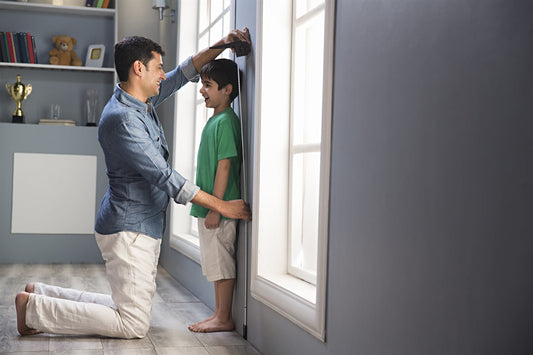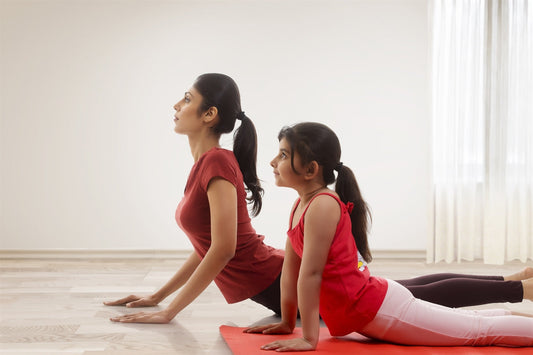child’s early years are a critical period for their long-term health and development. This is because the brain grows rapidly, starting before birth and continuing into early childhood. While the brain continues to develop and change even during adulthood, the first 8 years of a child’s life can build a foundation for their future health and success. The brain’s development can be attributed to a multitude of factors aside from genetics, including:
- Prevention of exposure to toxins or infections
- Interactions with other people and their surroundings
- Proper nutrition beginning from pregnancy
A healthy diet and the right nutrients, like sufficient folic acid, can promote a healthy pregnancy and a healthy nervous system in your growing baby. It is wise to consider a nutrition supplement for your child to ensure they get the nutrition they need to support brain development and function. 
The Importance Of Playing
Playtime is just as important as walking, talking, and sleeping - for all age groups and especially children. Playing allows a child to freely explore, experiment and make sense of their surroundings. It is not only fun but also helpful in learning skills, solving problems, overcoming challenges, being creative, and forming relationships. Playtime stimulates the imagination and cognitive development of children. Role-play and pretend play are also very important for the same reason. By dressing up as a superhero or a policeman and conjuring scenarios, a child experiments with different identities and different situations.
They not only use their vivid imagination to come up with ideas but also their cognitive skills to negotiate with imaginary characters and solve problems when the 'pretend' situation requires them to.
This kind of play often reflects issues that a child is trying to come to terms with (e.g. a new sibling) or is a mirror of an incident or a situation that he has been exposed to. Hence, it is very important for parents to be in tune with their children, as this will enable them to pick up clues as to what is happening with their young ones.
You may have noticed that your toddler has suddenly started talking to themself or to their toys. It may seem a little crazy to you - but this helps them to spur their imagination. This is called imaginative play and is very important for children. Since by the age of 2 - a child knows what symbols are and how objects represent things.
So, what can you as a parent do to make the most of your child's play time?
Always follow your child's lead. Provide them with an object or a toy and see what they do with it. Even if they play with it the wrong way, let them be. Let them show you a 'new way.' Even if your child is trying to stack blocks, show them how to do it and let them try on their own. Provide them with just enough help to keep frustration from settling in.
Play Promotes Social Skills And Cognitive Development
During the pre-school years, when toddlers play side by side even without talking, they are actually learning something. They are learning to interact, negotiate, and share with one another i.e. they are learning to form healthy social relationships. A child's interpersonal negotiation strategies not only help them to become more social, but they also help them with their cognitive skills.
Encourage your child to be social. Allow them to make friends and take them to visit them or ask them to visit your child.
Play Helps Physical Development And Cognitive Development
Physical play helps in physical development i.e. development of gross and fine motor skills. Pedaling a tricycle or kicking a ball not only helps a child to improve coordination but also helps him build leg muscles. These are important for the development of their gross motor skills.
Fine motor skills improve through activities like stacking blocks and completing puzzles. Not only do they improve a child's finger dexterity and coordination, but they also help in developing their matching and shape recognition skills.
Set a good example. Try to take your child out to the park as much as possible. Climbing monkey bars and kicking the ball around will improve his larger muscles. When indoors, play games together. Build a house made of blocks or dance. Do something interesting to keep them active and moving.

Play Promotes Natural Curiosity
All children are born curious since everything around them is new. Therefore, it is imperative to stimulate this natural curiosity and imagination and one way of doing this is through play. Going to the park could become and adventure for them. They observe things around them (e.g. trees, people, swings) and see how everything fits in together. They also learn by exploring and touching things and feeling the different textures. They learn that sand feels different from grass, and both of these feel different from the iron the monkey bars are made of. Play is a simple activity but promotes imagination and development in a child.







